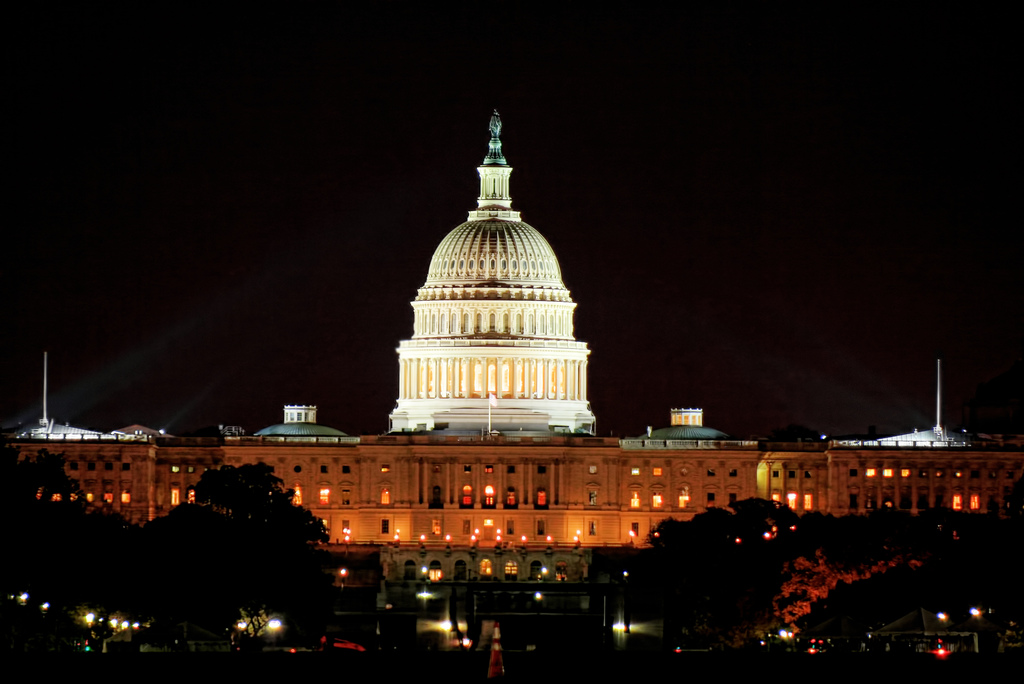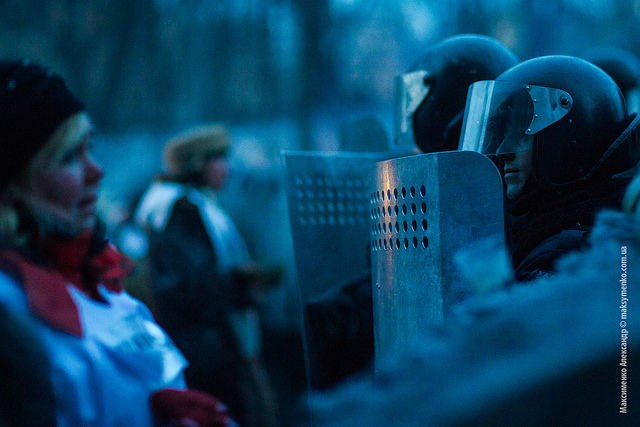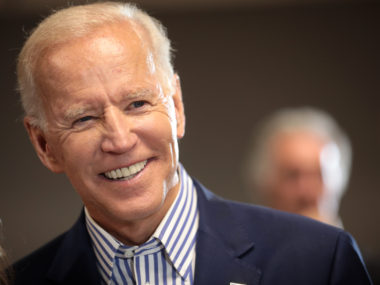By Michael Poznansky and William Spaniel for Denver Dialogues.
The AUMF is back in the news. Last month, Senators Bob Corker and Tim Kaine introduced new legislation to replace the 2001 and 2002 Authorization for the Use of Military Force bills. The former provided the authority to go after al-Qaeda, the Taliban, and “associated forces”; the latter authorized the 2003 War in Iraq. In advancing this new bill, Corker and Kaine pushed Congress to reassert some degree of authority over war-making decisions, but some observers aren’t persuaded it will have this effect.
Time will tell what will become of this particular piece of legislation. In some ways, though, it is a proxy for a broader conversation about how much latitude American presidents will have to prosecute the so-called War on Terror in the years ahead. Since 9/11, Congress and the public have given the executive branch a long leash. If this deference wanes, the manner in which oversight over foreign policy evolves – especially for activities that occur far from public view – could change. Perhaps most surprisingly, the impetus for that change could come from an unlikely source: the president.
The Problem of National Security Secrecy
In a forthcoming article at the American Journal of Political Science, we ask whether and how leaders can credibly commit not to engage in controversial covert activities. Upon first glance, this seems like a nearly impossible task. As Michael Colaresi put the issue in his 2014 book Democracy Declassified, “How can the public be confident that foreign policy programs advocated by the executive will enhance security if that same leader also has the power to selectively reveal and hide relevant information?”
Colaresi’s answer to this vexing question was retrospective oversight institutions. Things like freedom of information laws, a free press, and investigative bodies of various kinds can disincentive executives from abusing their power, at least sometimes. This is clearly important. But several questions remain. First, why would executives agree to policies, and especially reforms, that tie their own hands? Second, what role do whistleblowers, who are themselves key sources of information, play? Finally, leaders, especially in the US, can often keep documents classified for decades, freedom of information laws notwithstanding. How might the prospect of keeping secrets indefinitely impact executive behavior?
Credible Commitments in the Covert Sphere
To get at these questions, we model the interplay between three actors: an executive, a watchdog group (think Congress), and a whistleblower. When executives would incur minimal punishment for taking covert action and getting caught – what we refer to as revelation costs – they are likely to regularly pursue covert operations even if whistleblowers will leak and watchdogs will investigate.
The calculus changes when the revelation costs are larger. In fact, when they are substantial, the threat of whistleblowing alone is sufficient to deter executives from taking covert action. The interaction becomes trickier when revelation costs fall in the middle range. Here, executives prefer not taking action and not suffering through an investigation to taking action and suffering through an investigation. But because whistleblowing alone is an insufficient deterrent, executives respond by sometimes taking action and sometimes refraining. Unsure what to do, watchdogs exert middling effort to investigate. This is a bad outcome for executives since investigations sometimes occur even when no covert action was taken, which taxes their resources.
Given these incentives, executives can do several things to improve their welfare. First, they may consent to additional punishment. This includes rendering a class of covert actions illegal, thereby raising the costs of getting caught engaging in the outlawed activity. Second, they may facilitate whistleblowing by setting up processes that make it easier to blow the whistle. By raising the revelation cost themselves, executives can make commitments to engage in “good” behavior credible.
Gerald Ford’s Intelligence Reforms
We assess these claims by examining the events which led President Gerald Ford to make a series of consequential reforms to the intelligence community in 1976. The case unfolds in three stages.
In the first stage, the revelation costs for conducting covert action of almost any kind was relatively low. From the creation of the modern intelligence community in 1947 through the mid-1970s, Congress, the media, and the public showed extreme deference to US presidents in this realm.
This changed in the second stage. The Watergate scandal, combined with allegations of political assassinations and domestic spying, effectively ended the decades-old era of deference. The final stage explores how Ford responded to this shock. The goal was to credibly commit to Congress and others that neither he nor future presidents would repeat the sins of their predecessors, but promises weren’t enough. Instead, Ford issued Executive Order 11905 which, among many other things, outlawed political assassinations and created an Intelligence Oversight Board to facilitate whistleblowing.
Lessons for the Future
“Credible Commitment in Covert Affairs” has numerous implications for the present day. First, changes to the revelation costs associated with covert operations may incentivize executives to scale back restrictions on their freedom of action. This may have happened in the years after 9/11, when both Congress and the public gave the White House wide berth to prosecute the War on Terror (Bush’s efforts to defang the Intelligence Oversight Board provide one possible example).
Another implication brings us back to the issues raised by the AUMF debate. If Corker and Kaine’s bill represents a trend toward less deference to executive authority in the foreign policy arena, this may signal a concomitant rise in the revelation costs associated with covert activities of various stripes. If true, it is possible that a sitting president, mirroring Ford nearly forty years ago, would champion reforms in the realm of national security secrecy to avoid the prospect of costly and unwanted investigations. The future of drone warfare, targeted killings, and the like could very well be impacted.
Michael Poznansky is an assistant professor in the Graduate School of Public and International Affairs at the University of Pittsburgh (@m_poznansky). William Spaniel is an assistant professor in the Department of Political Science at the University of Pittsburgh (@gametheory101). Portions of this post originally appeared on the American Journal of Political Science’s website.






